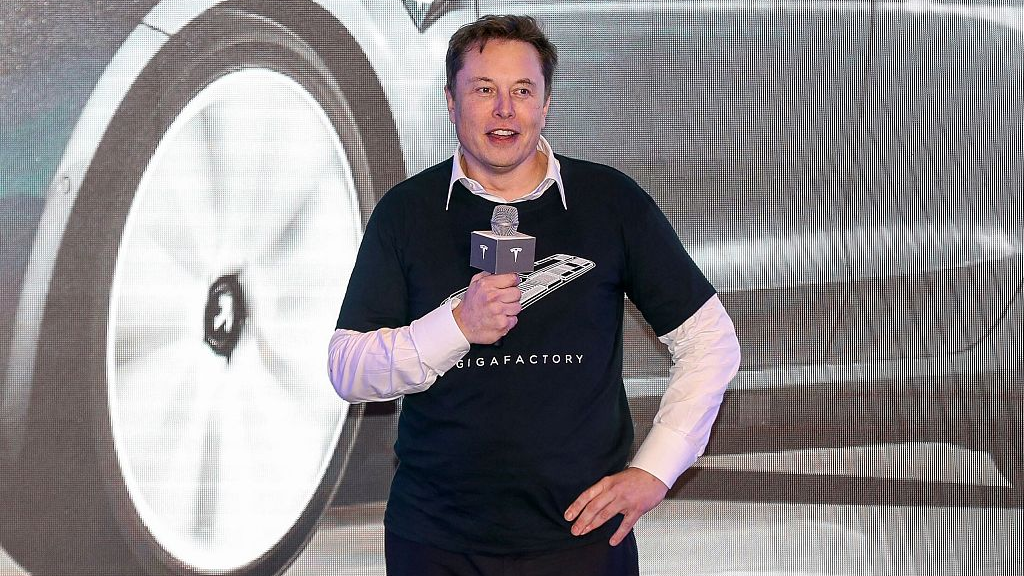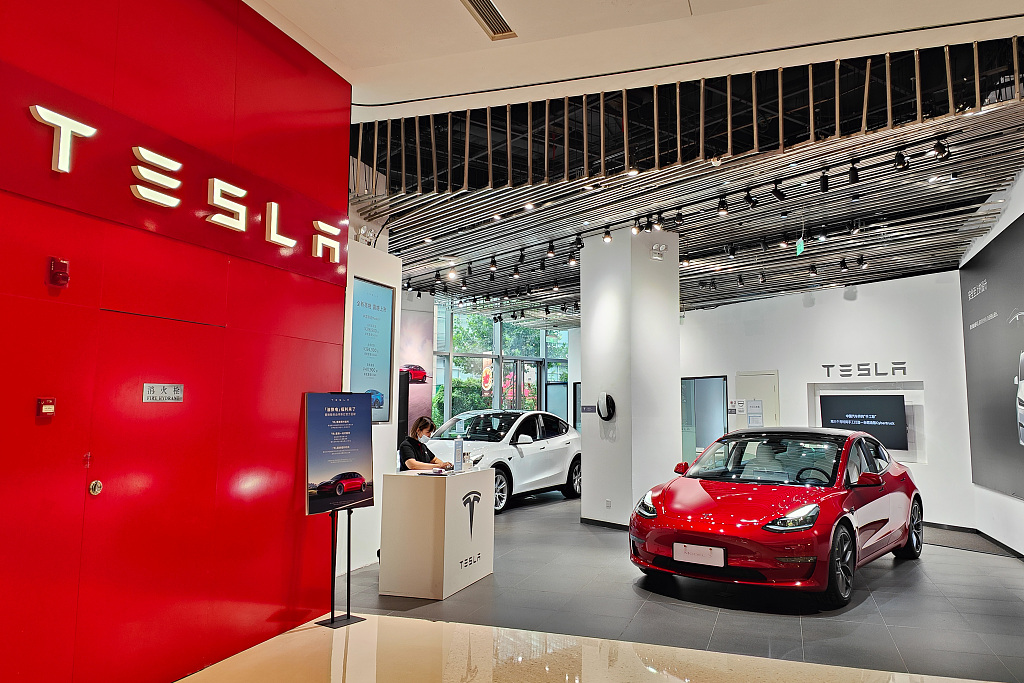
Tesla CEO Elon Musk speaks during the Tesla China-made Model 3 Delivery Ceremony in Shanghai, China, January 7, 2020. /CFP
Tesla CEO Elon Musk speaks during the Tesla China-made Model 3 Delivery Ceremony in Shanghai, China, January 7, 2020. /CFP
Editor's note: Haifa Said, a special commentator on current affairs for CGTN, is a former head of the Foreign Media Department of the Syrian Information Ministry, and an independent op-ed writer in Syria, who worked for China Today magazine. The article reflects the author's opinions and not necessarily the views of CGTN.
In the world of business, businesspersons see no frontiers or countries on this planet, they only see markets. American tycoon Elon Musk is not an exception. Whether Washington likes it or not, China remains an important market for top U.S. business magnates.
The increasingly U.S.-promoted "decoupling" from the Chinese economy does not resonate well with the CEO of Tesla, Twitter, SpaceX and other companies. His description of the American and Chinese economies as "conjoined twins" with "intertwined" interests during his meeting with Chinese Foreign Minister Qin Gang on Tuesday in Beijing implies a continued confidence in China-advocated globalized economy.
Despite the recent shift in the rhetoric of U.S. President Joe Biden and his European allies, replacing "decoupling" with a supposedly softened term of "de-risking" in defining their economic strategy towards China amid heightened tensions between the world's top two economies, Tesla opposes the trend, which, as far as its interests are concerned, involves an intolerable risk.
The American billionaire's high-profile, yet high-stakes visit to China on Tuesday, his first in three years since the coronavirus pandemic, where he met economic officials and businessmen, came at a time when Tesla, one of the world's most valuable automakers, plans to boost its position in the Chinese market and utilize the country's economic rebound after the government lifted COVID-19 travel restrictions.
China is the world's largest market for new cars and new electronic vehicles (EVs) – almost one in four cars sold in China in 2022 was an EV, as 60 percent of the global EV sales took place in the Asian country. It is also Tesla's second-biggest market after the U.S. Tesla sold around 440,000 vehicles in China in 2022, about one-third of its total unit sales.

A Tesla store in Huangpu District, Shanghai, China, July 19, 2022. /CFP
A Tesla store in Huangpu District, Shanghai, China, July 19, 2022. /CFP
Now that the COVID-19 controls are lifted, a fresh stage of economic recovery has kicked off, which has allowed the Chinese market to unleash its potential. The Chinese government's strong promotion of electric vehicle ownership as a solution to urban air pollution has also made its market more relevant to the current global electrification trend.
Fully aware of this fact, Musk is keen on maintaining his position in China, a key market for him which he could not afford to give up.
On a broader level, China, having resolutely returned to business after three years of COVID-19 fluctuations, wants to move ahead and re-establish ties with the rest of the world.
At his meeting with a group of global CEOs on the sidelines of the China Development Forum in Beijing last March, Premier Li Qiang, promised a better business environment for foreign companies. "China will open its door wider and wider," he told the executives.
Focused on economic growth, Beijing has showed a commitment to addressing concerns of foreign businesses and acting upon its promises for aligning with international economic and trade rules, securing equal treatment to foreign investment and facilitating trade and investment by removing government controls.
The regulations of the foreign direct investment (FDI) fall into this context as they aim at building an environment of stability, predictability, transparency and fair competition for foreign investors.
Allowing foreign investors to be on a level playing field with domestic enterprises and companies, seeking to equalize the setup process for domestic and foreign businesses and allowing the opportunity for more privileges, profitability and decision-making power for foreign companies were taken into account in a number of the law provisions.
China's determination to open wider is also coupled with it being a global manufacturing center and its market being a consumption powerhouse that continues to be increasingly influential in global consumer trends, making foreign companies' success in China ever more critical for their ability to compete globally.
The need for a sustained presence in China reflects Musk's confidence in the vitality of its market, echoing that of other U.S. business heavyweights – including Apple's Tim Cook and Starbucks' Laxman Narasimhan – who have recently been to China in their intent to maintain their shares in a promising market on both the supply and demand fronts, regardless of the U.S. and its allies' persistent attempts at devaluing and undermining it.
Musk and his fellow business magnates seem to see eye to eye with Beijing that the U.S.-China relations are not a zero-sum game, and both sides can work together to secure a stable globalized business environment that is less vulnerable to political tensions.
(If you want to contribute and have specific expertise, please contact us at opinions@cgtn.com. Follow @thouse_opinions on Twitter to discover the latest commentaries in the CGTN Opinion Section.)